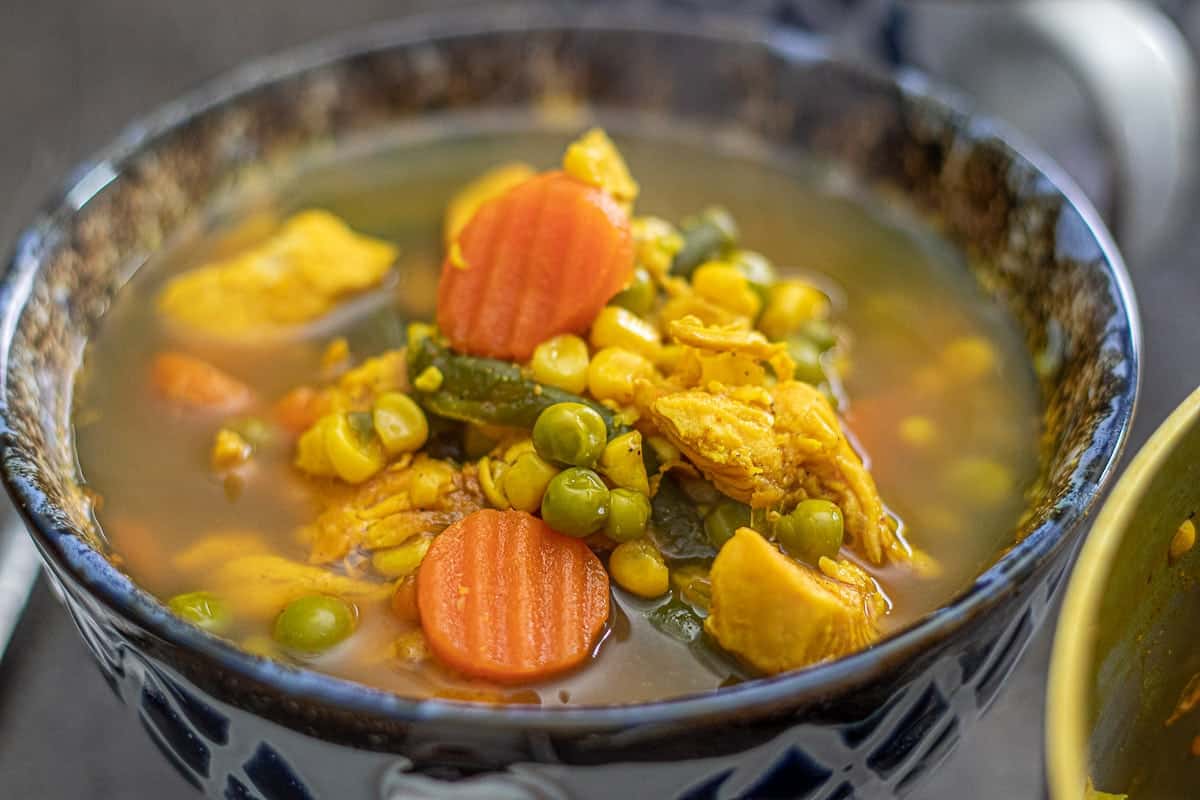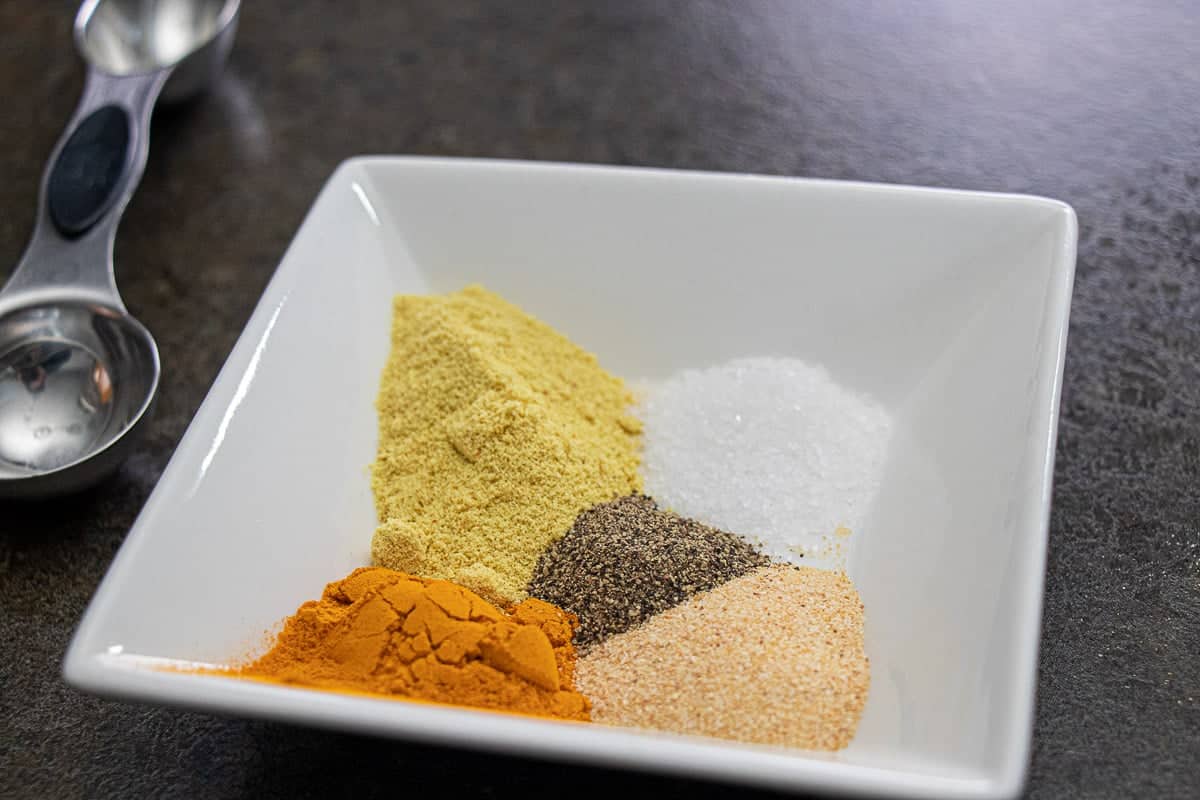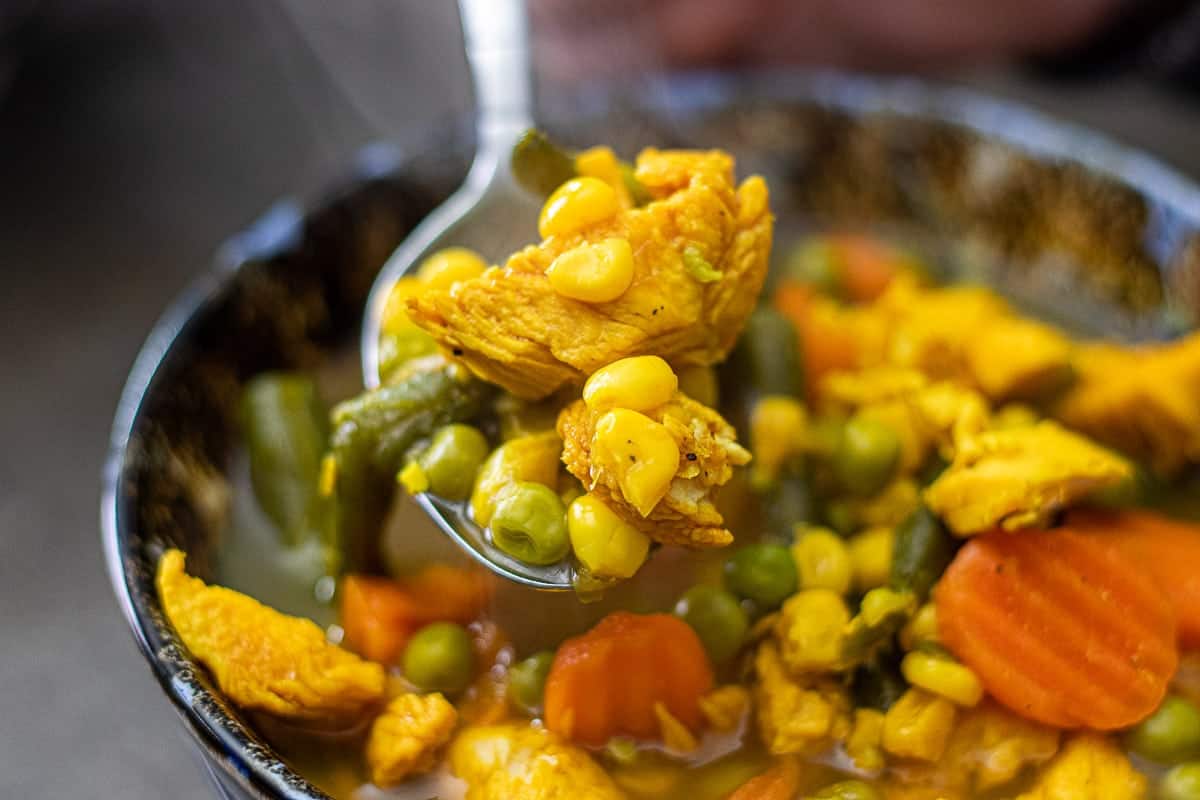Chicken vegetable soup is a classic comfort food that is both nutritious and satisfying. But many health-conscious eaters wonder, just how many calories are in a serving of veggie soup with chicken? The answer depends on the specific ingredients and portion size. By understanding the calorie content, you can enjoy this soul-warming soup while meeting your health goals.
Calculating Calories in Chicken Vegetable Soup
The number of calories in chicken vegetable soup depends on
- The type and amount of vegetables used
- Whether the soup contains pasta, rice or other grains
- How much chicken is included
- The amount of oil or other fats used in cooking
- Whether the broth is homemade or from a can
- Serving size
To determine the calories, you need to look at the nutrition information for all of the individual ingredients.
For example 1 cup of chopped carrots has around 45 calories. A chicken thigh with skin has about 185 calories. If your soup contains 1 cup each of carrots celery, onion, diced chicken, and chicken broth, the total calorie count will be the sum of all those items.
So that hypothetical 1 cup serving would have about:
- Carrots: 45 calories
- Celery: 15 calories
- Onion: 45 calories
- Chicken: 185 calories
- Broth: 45 calories
- Total: 335 calories
As you can see, the ingredients can add up quickly! But the calorie count drops if you use boneless, skinless chicken breast rather than thighs.
Calorie Range for Chicken Vegetable Soup
Most chicken veggie soups contain 100 to 300 calories per 1 cup serving This depends on the specific recipe
For example:
-
1 cup of a broth-based soup with lots of low-calorie vegetables and just a small amount of chicken may have around 100-150 calories.
-
A cream-based chicken vegetable chowder with potatoes and other starchy veggies might have 250-300 calories per cup.
-
Homemade chicken noodle soup with egg noodles may fall in the middle, with 175-225 calories per serving.
So in general, a plain broth-based veggie soup with chicken will be lower in calories than a creamy, starch-heavy chowder. And soups with pasta or rice will be higher in calories than broth-based soups without grains.
Nutrition in Chicken Vegetable Soup
While the calorie density varies, chicken vegetable soup packs a nutritious punch. It provides:
-
Protein – from the chicken. This helps you feel satisfied.
-
Fiber – from the vegetables and grains. Fiber is important for digestion.
-
Vitamins and minerals – especially vitamin A, vitamin C, potassium and iron from the colorful vegetables.
-
Antioxidants from ingredients like tomatoes and carrots to help fight inflammation.
-
Hydration from the liquid broth, which is beneficial if you’re sick.
Plus, research shows that chicken soup may help reduce inflammation associated with colds. The warm broth provides comfort when you’re feeling under the weather.
Tips for Lightening Up Vegetable Chicken Soup
To lighten up homemade chicken vegetable soup:
- Use reduced sodium chicken or vegetable broth
- Skip adding oil or butter – sauté aromatics like onion and garlic in broth
- Increase low-calorie vegetables like carrots, mushrooms and greens
- Use lean chicken breast instead of thighs
- Limit starchy vegetables like potatoes or corn
- Skip the pasta, rice or heavy cream
- Use herbs and spices instead of salt for flavor
With smart substitutions, you can enjoy a big bowl of chicken veggie soup for under 200 calories. This nourishing soup provides protein, nutrients and comfort without weighing down your diet.
So next time you’re craving chicken vegetable soup, feel confident that you can make a healthy version that will warm you up without overdoing the calories. Aim for 1-2 cups as part of a balanced diet. Then you can savor the flavor and reap the nutrition of this classic comfort food.

It’s like a hug in a bowl!
Another GREAT thing about this chicken vegetable soup recipe is that it can be made on the weekend to enjoy throughout the week. Its easy to freeze and reheat, as well. All you need to do is:
- After making it, let the soup cool
- Grab a measuring cup
- Pour your serving into a freezer container or zip lock bag (we often put the soup into single-serving portions)
- Seal
- We also write on the bag how many servings, what it is, the number of calories, and the date (this way, you can avoid the old…” what is this” freezer guessing game.)

Having homemade soup on hand for when you feel a cold coming on. Its like a hug from mom. Grandma was right, after all: Chicken soup is good for a cold, not just the soul.

Key to enhancing the flavor in this soup
Sauté the spices in the pan when adding the chicken (raw or cooked). Sauté until chicken is fully cooked, and add the veggies. The aroma of these spices is amazing. We sometimes add roasted garlic if we have any available. This enhances the flavors. Our kitchen smelled so good, and we could hardly wait for the soup to finish.
Add the non-fat chicken broth to the chicken & veggie mixture, bring to a boil, and simmer for 30 minutes.

This recipe will make about 16 cups of soup. We didnt need to add any additional seasoning. It was perfect.
Serve as a main dish or appetizer.


Only 100 CALORIE Soup To Burn Fat Fast | Ragi Soup Recipe For Weight Loss | Bowl To Soul
FAQ
How many calories are in 2 cups of homemade Vegetable Soup?
Vegetable Soup Homemade (2 cups) contains 9g total carbs, 3g net carbs, 2g fat, 4g protein, and 80 calories.
Is chicken and veggie soup good for weight loss?
Chicken broth, for instance, is low in calories but rich in protein, making it a good base for a weight-loss-friendly soup. Adding vegetables and lean proteins such as chicken breast can enhance the nutritional profile while keeping it light.
How many calories are in a bowl of homemade veg soup?
Generally speaking, vegetable soup has between 100-200 calories per cup.Apr 23, 2025
